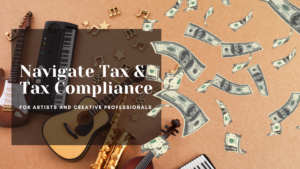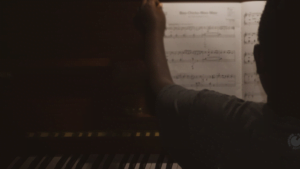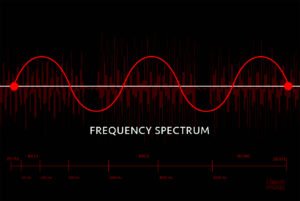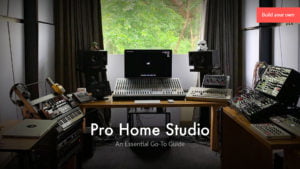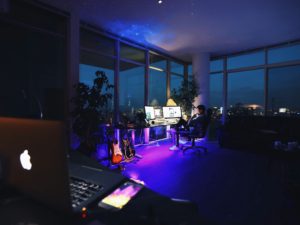The purpose of copyright is to give credit where it is due, to encourage the creation of new works by giving the creators the right to own and protect the interests, of their original creations. It comes into being the moment a work is created. It need not be registered, and registration is completely voluntary.
As a music producer/ composer protecting your work(s) does sometimes become quite essential. Especially if you are thinking of monetizing them.
It is not mandatory to register copyright in India. Registration is treated as a mere record of a fact. It can be contested, if proof of creation is available beyond the registered copyright and therefore registration is not a prerequisite for initiating action against infringement.
Every Country has its own copyright laws and these laws can be confusing. We have covered the basics, for you to better understand what goes into copyrighting your work in India; however, this is not a comprehensive guide but rather a simplified understanding of the process. So if you plan to copyright its best to consult a professional, namely a IP lawyer to get your work protected.
There are three basic ways you can protect music:
1. Lyrics under “literary work” for which the copyright owner is the lyricist.
2. Music under “musical work” for which the owner is the composer &
3. The recorded Song, which includes both the lyrics and the music, is protected under “sound recording” for which the owner is the producer of the sound (predominantly record labels).
THE PROCESS TO COPYRIGHT YOUR MUSIC
The process of copyrighting music is the same as for any kind of copyrighted work. That is, it begins with the initial stage of submitting your copyright application to the “Registrar of Copyrights” in your country.
1: Make sure you record your song in a “Tangible Medium” that is in written form or on a taped/digital sound recording)
2: Register for An Account at the Copyright Office Website in your country. For India, you can register here: India Copyright registration.
3: Fill out the Registration Application
4: Pay the Registration Fee
5: Submit a Copy of Your Song
6: Formality Check
To ensure that the basic requirements have been completed, a formality check may take place. (2-4 copies of your work depending on what country you are applying in, prescribed fees etc.)
If an application, fails the ‘Formality Check’, the office generates a letter addressed to the applicant requesting him/her to for furnish the necessary requirements.
7: Wait for Your Registration to Be Processed
HOW LONG DOES IT TAKE?
Usually, a minimum waiting period of thirty days is given, from the date of receipt of your application. This period is actually a buffer time for anyone, to raise an objection in case he claims or disputes your application. The application is further processed if no objection is raised or received by the Registrar’s office.
Apart from this, a scrutiny process is done by an examiner. If any discrepancy is found, a hearing by the registrar will follow. Once the registrar is satisfied, he will approve the copyright registration. Thus, it is best to consult with a lawyer specialising in Intellectual Property Rights.
DIFFERENCE BETWEEN MUSICAL WORK & SOUND RECORDING
A genuine problem that many applicants face while filing is differentiating between Musical Works and Sound Recording.
Copyright is registered under “Musical Work” when a composer develops a melody that is represented as a piece of sheet music or any other form of graphical musical notation.
However, when the same melody is recorded on a Vinyl, CD, Flash Drive or any other medium the said work is then copyrighted under, “Sound Recording”
“In a musical work, Copyright is not the soulful tune, the super singing, the glorious voice or the wonderful rendering. It is the melody or harmony reduced to printing, writing, or graphic form”
As observed by the Hon’ble Supreme Court in Indian Performing Rights Society v. Eastern Indian Motion Pictures Association [AIR1977 SC 1443] “
What do I do if my work has been used without my permission ??

PROVING COPYRIGHT & ACTIONS AGAINST INFRINGEMENT
Technically, copyright is given to a work that is original and has a minimum modicum of creativity by the author who creates it. Its protection starts as soon as the work is created. Therefore, if one can prove that a work was created by them, and the date of such work, this would be sufficient protection.
That being said, if a work is protected through the registration of the work through the proper legal procedure, it would hold more value in a court of law.
Actions against infringement, or remedies for infringement, can be bifurcated into the following:
CIVIL REMEDIES
- Interlocutory Injunction: This injunction prevents a party to a suit from doing certain acts until a judgment is made. This prevents any further damage from happening to the party whose rights are getting infringed.
- Mareva Injunction: This injunction allows the court to get custody of the goods that are causing the infringement until the judgment is passed. This allows the goods to be safe and not disposed off.
- Monetary Relief: Monetary relief can be of the following kinds: Damages(compensatory and conversion), and profits earned by the infringing party.
- Anton Pillar Order: This order has several functions. The main one is that it prevents the infringer from destroying the goods that are causing the infringement. The copyright owner also has the right, under this order, to take the infringing goods into safekeeping.
And if you’re feeling particularly vengeful !!
CRIMINAL REMEDIES
A person who is found guilty of infringing the copyright of another person would be liable for imprisonment(minimum 6 months, maximum 3 years) or a fine(minimum Rs.50,000, maximum Rs.2,00,000).
All in all it’s better to keep your work protected and also good practice to get permission before you sample someone else’s work.





